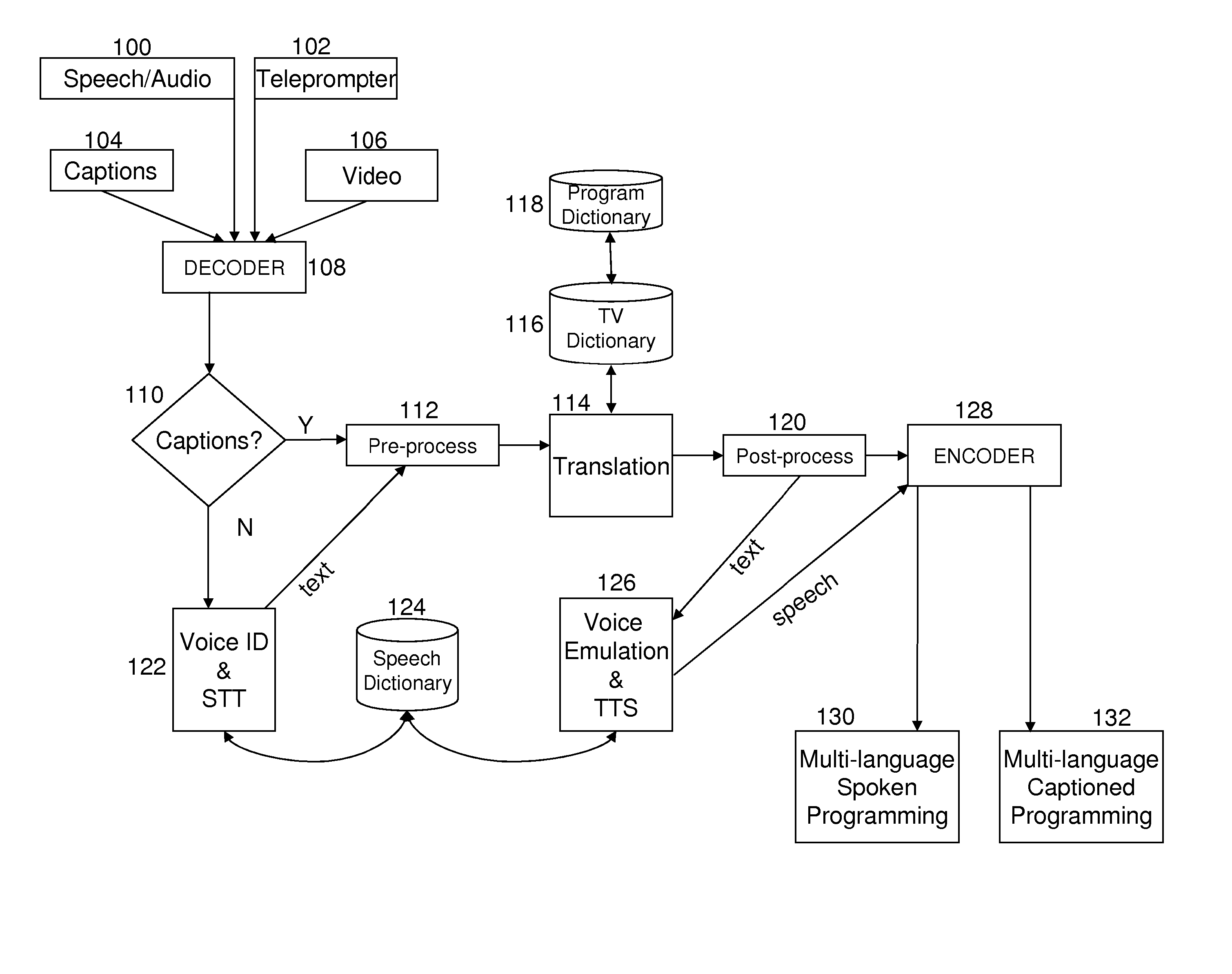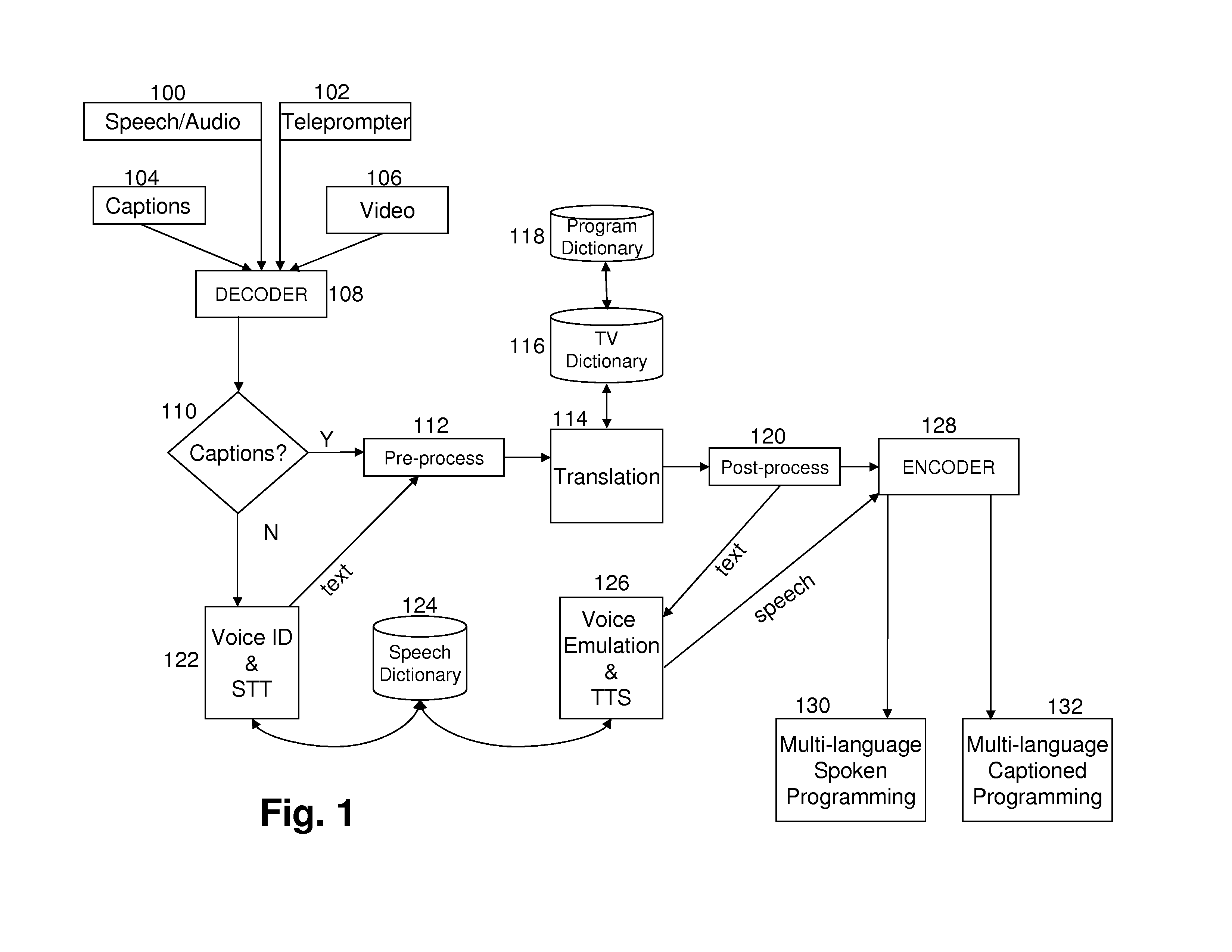Integrated speech recognition, closed captioning, and translation system and method
a speech recognition and closed captioning technology, applied in the field of integrated speech recognition, closed captioning, translation system and method, can solve the problems of high cost, large but expensive, and inability to significantly reduce the cost of providing “live” or “real-time” closed captioning services, and achieve the effect of cost effective and cost-effective reduction
- Summary
- Abstract
- Description
- Claims
- Application Information
AI Technical Summary
Benefits of technology
Problems solved by technology
Method used
Image
Examples
Embodiment Construction
[0013] Referring to FIG. 1, a block diagram of the primary components for an example embodiment of the present invention is shown. The present invention comprises a closed caption decoder module 108 and encoder 128 with features and functionality to provide speech-to-text conversion and language translation. In an example embodiment of the present invention, there are four possible inputs to the decoder module 108. The decoder module 108 comprises a decoder for each input stream. The first input is speech / audio 100 which includes audio track from a television program or other video source such as videotape recording and may contain speech from one or more speakers. The second input is a teleprompter 102 which is the text display system in a newsroom or live broadcast facility. The text may be directed to the captioning system as a replacement for live captioning. The third input is captions 104 which may be live or pre-recorded text captions that are produced live or prior to progra...
PUM
 Login to View More
Login to View More Abstract
Description
Claims
Application Information
 Login to View More
Login to View More - R&D
- Intellectual Property
- Life Sciences
- Materials
- Tech Scout
- Unparalleled Data Quality
- Higher Quality Content
- 60% Fewer Hallucinations
Browse by: Latest US Patents, China's latest patents, Technical Efficacy Thesaurus, Application Domain, Technology Topic, Popular Technical Reports.
© 2025 PatSnap. All rights reserved.Legal|Privacy policy|Modern Slavery Act Transparency Statement|Sitemap|About US| Contact US: help@patsnap.com


